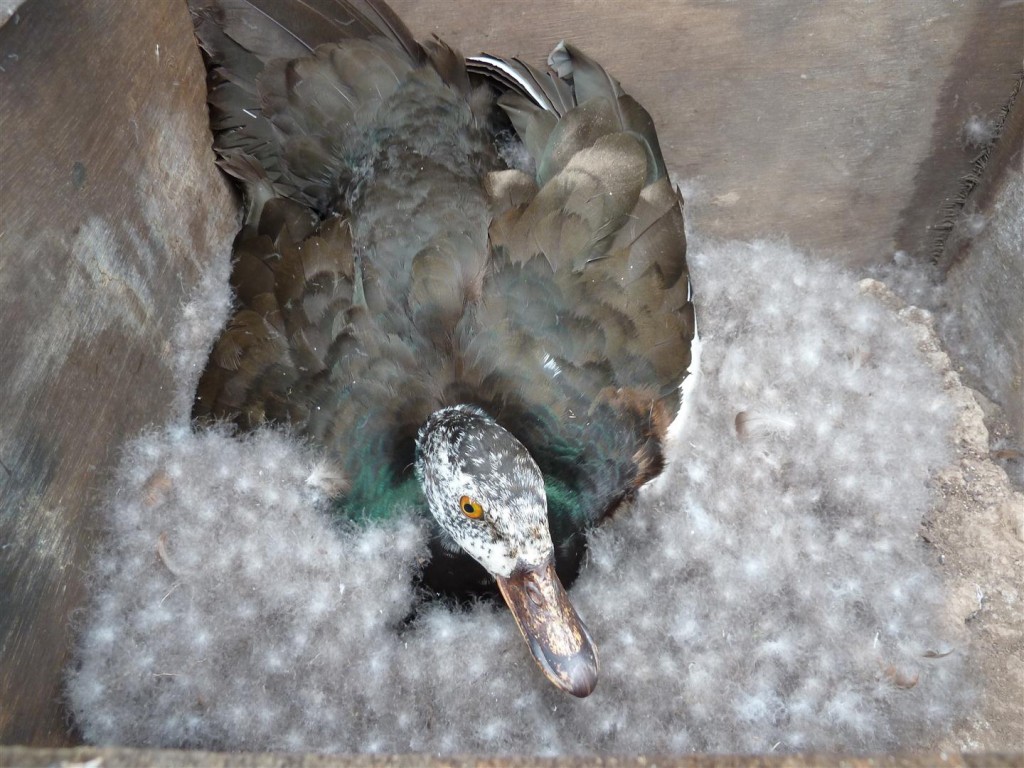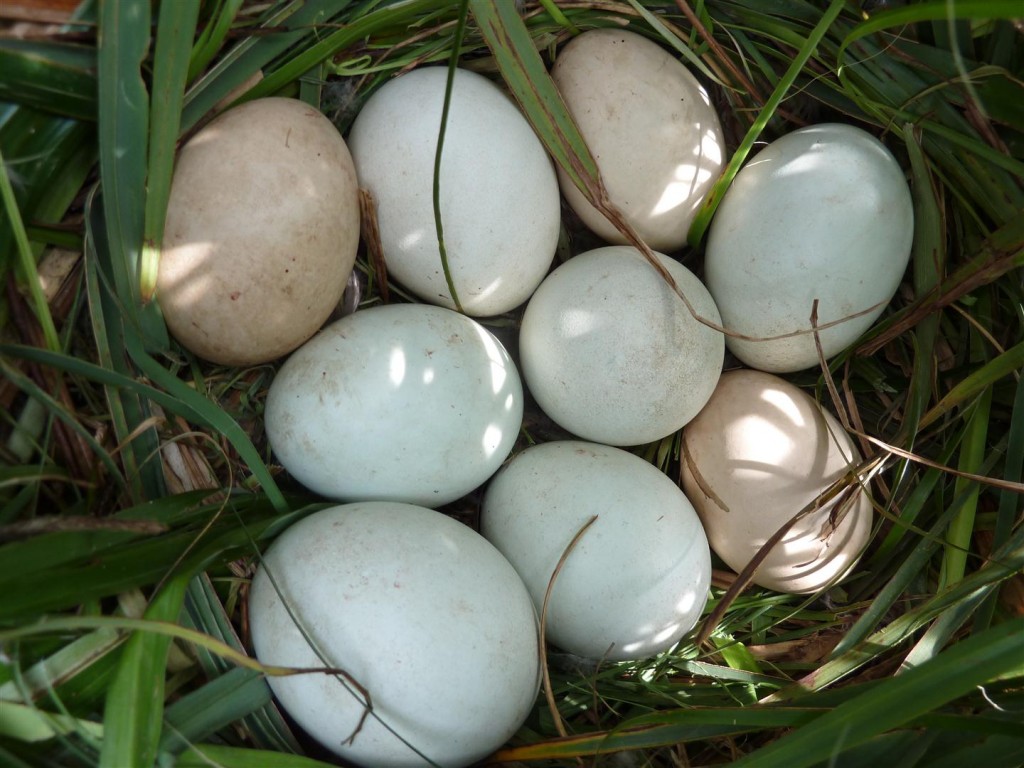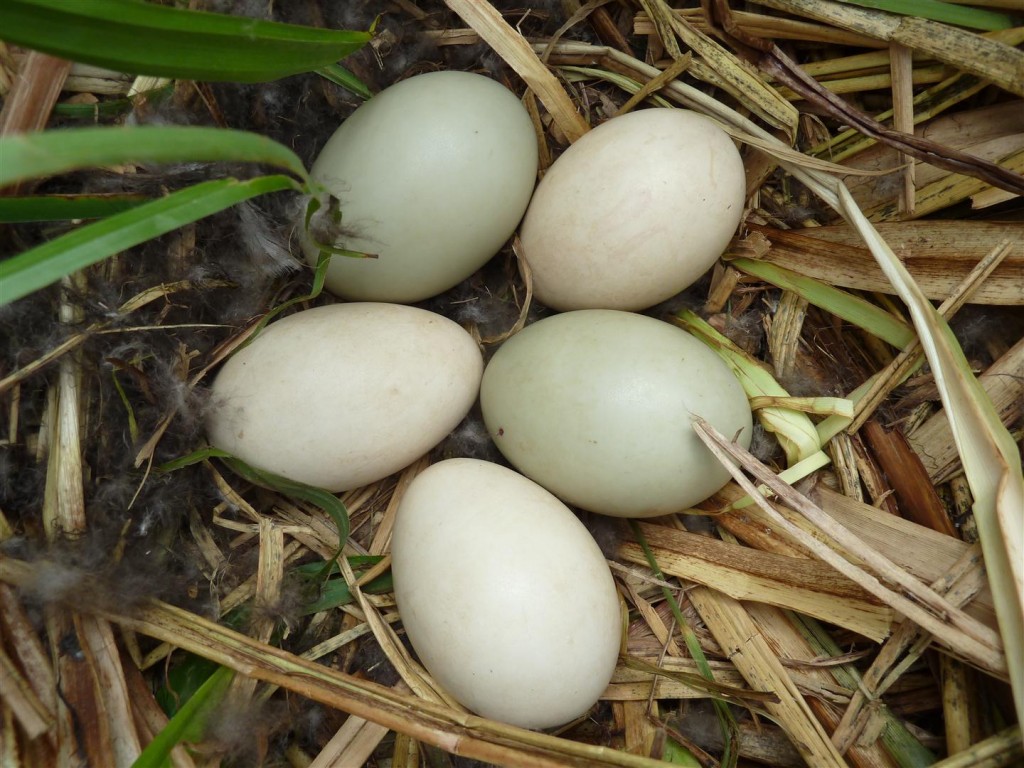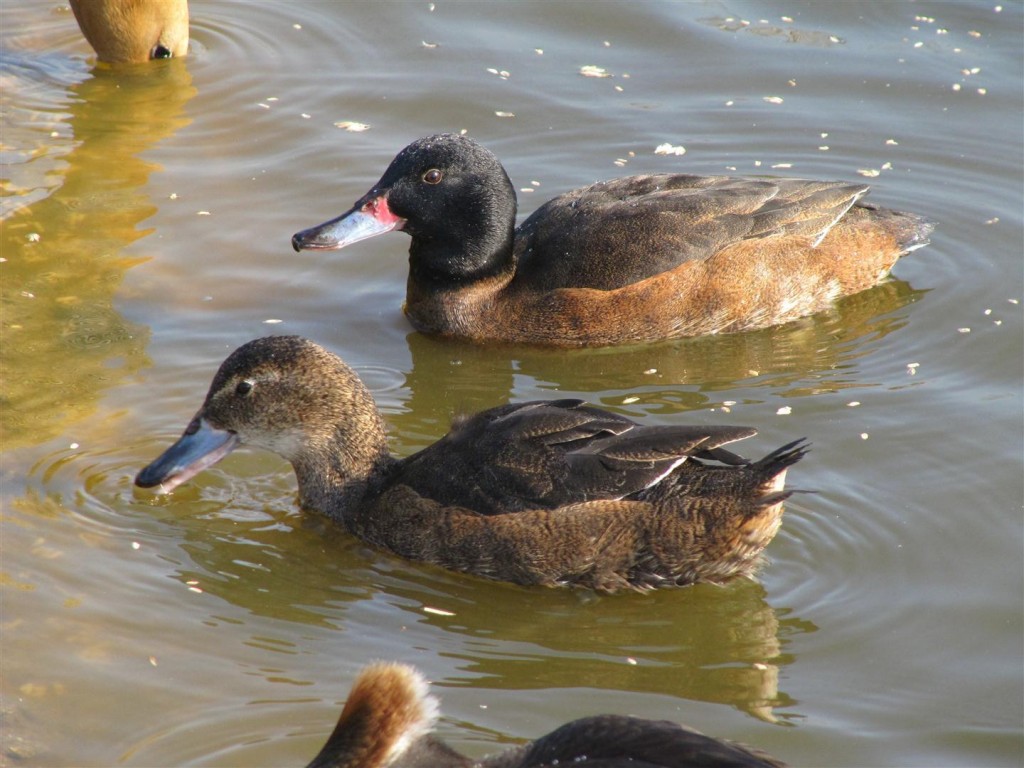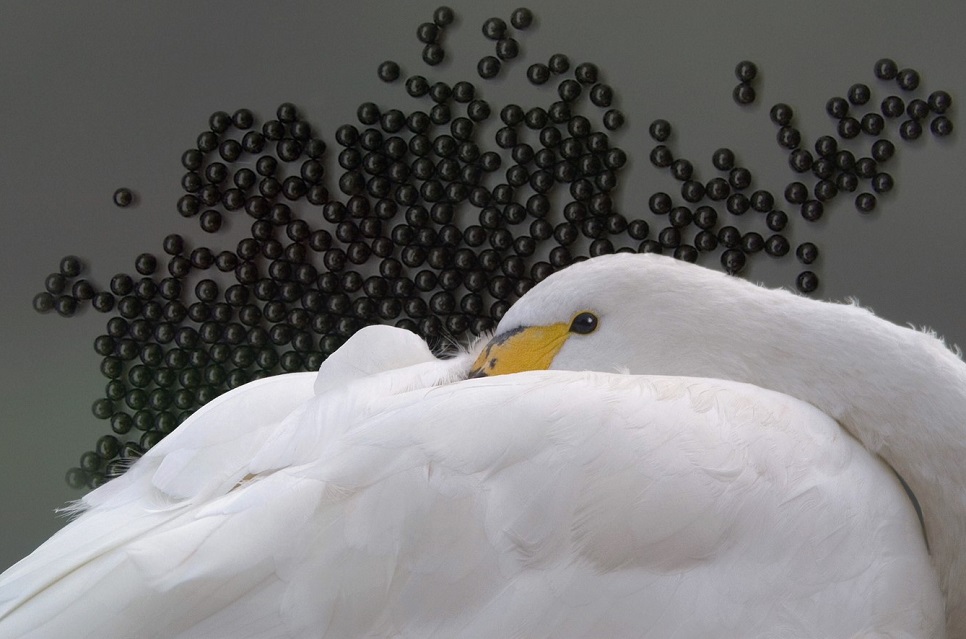Breeding news.
Sorry for the lack of posts recently; it's been all go in the Duckery this June! I thought i'd take some time out to show you some behind the scenes shots of some of the stars of the show!
The Puna teal nearly always start off the season and this is by far the best female we are breeding from. Unlike most ducks she is kick ass, and sticks to her nest like glue. Any interference and she stays there, trying to bite off your fingers! This might not seem remarkable with species such as stifftail but it is pretty unusual with these guys. I've made a note of her ID and hope to continue to use her as a surrogate mum in future, safe in the knowledge that she will do her best to deter intruders and egg predators. She sat on our Cape Shoveler eggs early in the season due to their rarity and delicate composition (possibly the thinnest eggshell we incubate.) She did a stonking job even if only one of the 4 eggs eventually hatched. 1 is better than none.
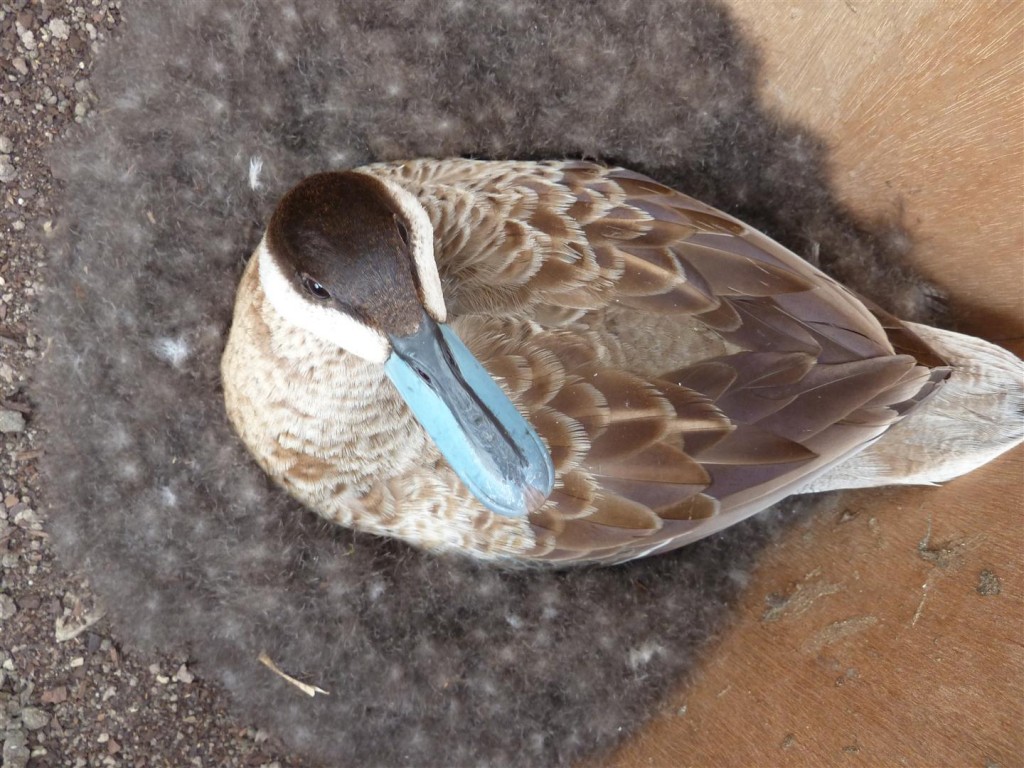 The White-winged wood duck also had a go. My absolute favourite, (amongst many) this gorgeous female sadly laid 8 infertile eggs. It wasn't entirely unexpected however due to an injury sustained to the male whilst jumping out of the waterfall (rock on!) They were bequeathed with the waterfall pen this breeding season, and whilst jumping around in the rocks he fell off and jolted his left leg a bit. We had hoped that his injury would heal on its own but sadly in the end we had to collect him up and inject him with anti-inflammatories. As a result I think that we rather impacted upon their general relations rather...
The White-winged wood duck also had a go. My absolute favourite, (amongst many) this gorgeous female sadly laid 8 infertile eggs. It wasn't entirely unexpected however due to an injury sustained to the male whilst jumping out of the waterfall (rock on!) They were bequeathed with the waterfall pen this breeding season, and whilst jumping around in the rocks he fell off and jolted his left leg a bit. We had hoped that his injury would heal on its own but sadly in the end we had to collect him up and inject him with anti-inflammatories. As a result I think that we rather impacted upon their general relations rather...
There were other notable exciting moments... Can anyone guess what eggs these are?
But there was even more news in the next pen! What about these?
And here they are! The rather amazing Black-headed duck or cuckoo duck. These ducks are parasitic and lay their eggs in the nests of other ground nesting species. The first nest was a Maccoa, and the second a Canvasback. The female slinks up during the laying process and deposits eggs in the nests of other birds before they are incubated. This might have been easy in the case of the Canvasback, but I bet the Maccoa had some misgivings about the whole affair! The eggs are then incubated by the host, but due to their shorter incubation period (19-21 days) they always hatch out first. Unlike cuckoos which destroy the other nestlings, BHDs just sort of dry off, peek out, and swim away! These stunning birds rear themselves, and simply borrow the warmth of the mother. In captivity they are hard to breed because they are secretive, poor walkers, diminutive, skinny and overall awkward. Their individualistic natures mean that they can destroy the breeding rhythms of other ducks, and can generally prove a touch annoying. Thankfully, two unrelated groups of these stunning birds have laid fertile eggs, so I look forward to rearing up unrelated pairs. Cross your fingers for a good ratio!
